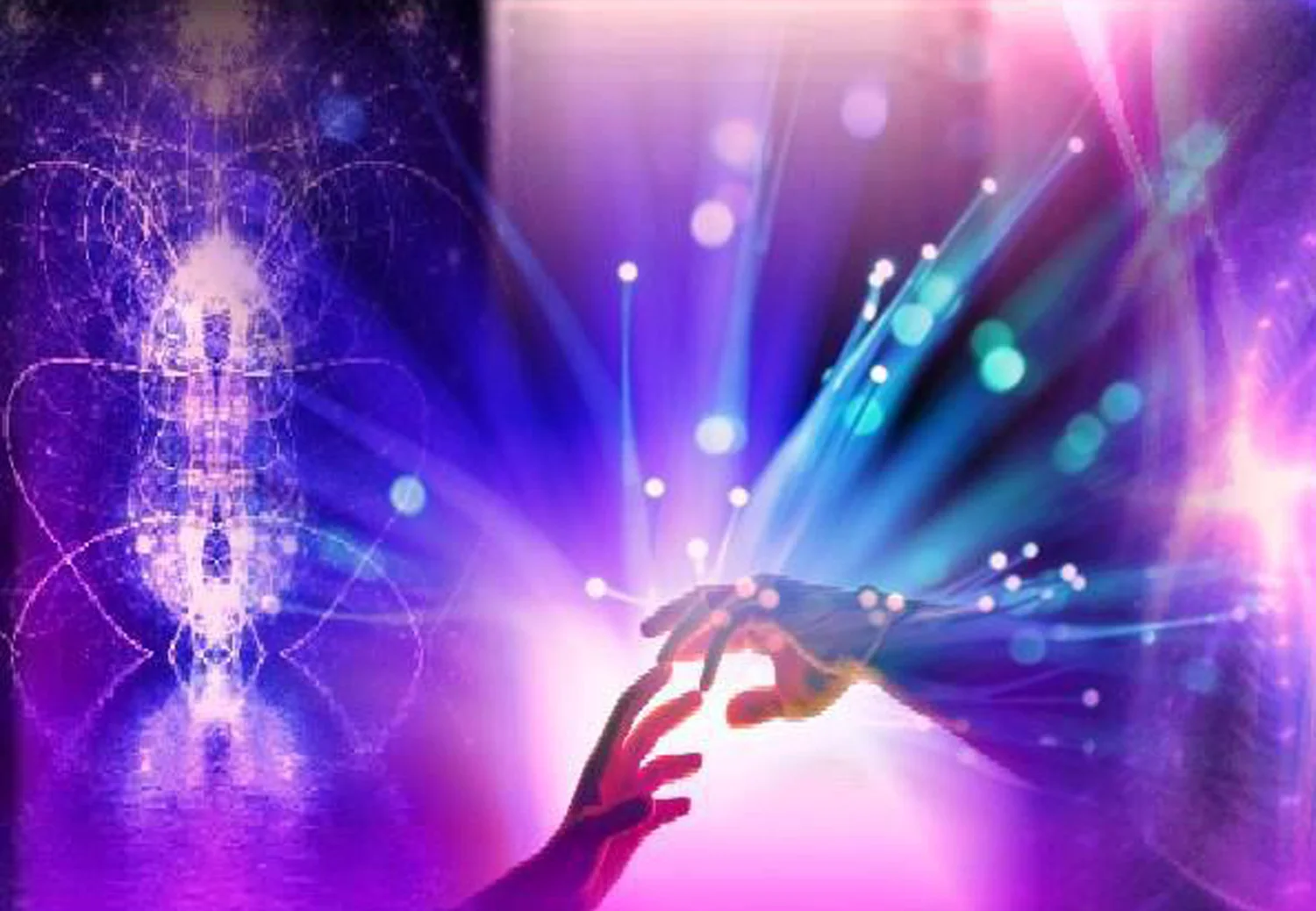No emotion brings ambivalence into our lives more than love. Anger, sorrow, hate, disappointment, guilt – these are all strong and clear feelings which we either feel or we do not. They aren’t lukewarm. But love seems to have a broad temperature range, and to appear and disappear spontaneously, co-existing with many opposites, and to trigger every other emotion from overwhelming joy to unbearable pain. Does it have a function or is it just another of the random challenges that arise in being human? Is love just one more aspect of identification to be set aside and discarded along the spiritual path?
Someone asked me recently “Is love even real? Isn’t attraction based on our conditioning and therefore part of the false self, the unreal self?” And indeed many of us have experienced this directly – entangled in a great passion for some length of time, then falling out of it, wondering how it is we could ever have been so deluded. It is not uncommon to love someone for years, and then find oneself losing interest, drifting away, no longer drawn to be with him or her. We can see how easily our conditioning draws us into relationships that do not serve us but we mistake for love, and how easy it is to project our desires on a lover and believe them to be someone they are not, simply because we want them to be that perfect other half of us. Often we are in love with our own thoughts of what someone could be or what love could be, and then shocked when we are let down, which is inevitable. This is the kind of love that is not real, or at least not sustainable because it is based on fantasy.
When love happens, who is loving? Is love arising out of the confusion and need of a little self, unable to face the loneliness of life, and needing companionship along the way? Or, is it simply biology, a male and female needing to bond, to mate or procreate, or simply to feel the wholeness of a connection with the biological opposite? When we love, whom do we love? Is it a little self who needs and wants us, or an imagined person who we empower to take care of us, or a sacred spirit shining forth from the eyes of the beloved?
Love is not a choice. We cannot pick someone out of crowd at random and decide to fall in love with them. We can choose to be loving in our behavior, which is simply kindness and a recognition of universal humanity. If it’s in our conditioning we probably do this. Beyond that, most people are simply taken by love, knocked into it by inner forces we cannot explain. These can be unconscious forces or biological drives, but the energy itself comes from a place more deep and mysterious. We may fall in love when we wish we hadn’t, when it is inconvenient, when we don’t believe it is possible, and with someone we never thought was our type. We may fall in love when we don’t want to feel vulnerable, when we are afraid of the consequences, when we think we are too young or too old. We can be taken by love for a child, a friend who is dying, a parent we rejected in the past, a stranger on a train. We can struggle against it, refuse to accept it, or think we don’t deserve it, but if it arises, the energy is there, drenching us like rain until it passes, whether we like it or not.
There is an ordinary love, which seems to be woven through our conditioning, and causes us to prefer certain partners, friends, and companions and impacts how available we are to loving relationships. This ordinary human love may be deeply conditioned by what we learned from our parents at a very young age about the safety and pleasure available in the company of others. People who have an easy time loving are thought of as having open hearts. Most people have limitations and contractions that limit their ability to love, so even if love arises and tries to push them into new directions, and new possibilities with new risks, they find themselves ambivalent, creating barriers to intimacy or true connection. We tend to play a kind of game with love, withholding when we are not getting what we want, criticizing when we project our own inadequacies on others, protecting ourselves from intimacy, or putting unrealistic expectations on someone else to meet our needs. Usually this hurts us as much or more than them. Our minds simply do not know what to do about love. Ordinary love is not unconditional, even if we would wish it could be.
There is also an instinctual love, particularly clear in the parenting role, which arises in most healthy people and is essential to the general well-being of the species. I do not think this is a conditioned love, but rather a spontaneous and natural connectedness between the heart of the parent and child, although harsh conditioning or early childhood losses can cause an adult to be limited or crippled in their capacity to experience this. Some people are genuinely shocked to discover an overwhelming love for their child, when they thought they were someone who never even particularly cared for children. But even this love can become ambivalent, and conditional, requiring certain behaviors and performance from the child. This happens when the mind takes over for the heart.
So is it fair to say that any limited form of love is not real, is not love at all?
From a spiritual perspective, that cannot be the case. The awakeness or consciousness that is the source of all life is the source of this feeling we have labeled love. When one is free the heart is released from conditioning, and thus from contraction, and in this release there is an unconditional love and compassion for all the elements of creation. The formless stillness that has manifest this dream of humanity appears to love its dream, even while it acknowledges the inevitable heartbreak that comes to those who are lost in the idea of separation.
It seems to me in all the ways we feel love in our life, from the momentary connection with another, to the great delusional passions, it is this love from the source, seeping through our cells, looking for an opportunity to take us over.
For many years I felt this energy of love and held it back, fearful and ambivalent about where it would take my life. It seemed as if love could make me out of control faster than anything else, cause me to feel for anyone and everyone, and I had associated love with pain ever since the death of my mother as a child. I thought that love meant having overwhelming feelings of attachment and vulnerability to loss. In my observation most people have experienced enough loss in their life to be somewhat skittish about love. But actually this is not the way it works, once you see there is no “me” to become attached or vulnerable. And still, there is love.
When I became involved in yoga, particularly meditation and kirtan (singing and chanting), I entered a stage of devotional love. In many spiritual communities this is encouraged, and in India many people consider Bhakti (devotional) yoga the quickest path to enlightenment for the average person. There are temples where people throw themselves before statues in tears, their heart passionately hungry for just a glimpse of the beloved divinity they adore. Christianity has often encouraged deep devotion to Jesus, Mary, or the saints and many young children with their open hearts become devotional in Christian settings. This too is a genuine love, one that is safely discharged toward a spiritual archetype, although it sometimes leads to disillusion when the entity fails to make an appearance, or grant a favor.
The path of devotion or love has a powerful potential, however, because it opens the heart. When people fall in love with a guru or spiritual teacher, this is also the function. (It is for this reason it is such an error for a guru to seduce a student or succumb to a student’s seduction – it derails the deeper value of their function, substituting for it the limitations of ordinary love, or simply lust.) Whatever the reasons for this loving, whether it be triggered by unmet childhood needs, longing for perfection, the projection of divinity on someone, the function is to crack open the heart and release the resistance to its natural flow. I am not speaking here of the physical heart, but of the spiritual heart, which Ramana Maharshi, a great Indian sage, said is the source of consciousness, the entry point through which we can return to the true Self, or the true nature. This is the subtle heart, the core of the subtle energy field, within which lies the passage to the experience of Oneness.
How natural that Oneness and universal spirit would enter our relative lives and penetrate the apparently separate selves we all appear to be through the heart, sending out energies we call love. These energies of love make us want to be connected to other beings, in whatever ways we can, to the limit of our tolerance. If we can only freely love cats, then that is what we will do. If love is distorted by games, then that is our limit for the moment. If we find one person we love for a lifetime, this is good enough. As we awaken spiritually we are forced to see the conditioning that blocks or distorts this river of love. As we relinquish our dependency on the mind for direction, we open the valves of the spiritual heart.
It may be that the mind can be clear and awakened without love. Some traditions may see it this way. But the clarity and wisdom of awakening cannot be embodied without it. Wisdom without love is dry and does not penetrate the deep recesses that need to open within us if we are to know our true nature. Most mystical traditions recognize this essential role of the heart in the awakening process.
So love is not simply a projection of unmet needs, a mistake made by a blinded and conditioned personality, or an unrealistic child-like longing. It is an irrepressible energy emitted by universal consciousness to show us the inevitability of connection and tempt us back into the bliss of the infinite One. In our lives lived as deluded separate entities, it is one of the irrepressible energies of Truth. If we want to live an awakened life we have to let love do with us what it will.
*****
Please do not reproduce without written permission from the author
© Bonnie Greenwell Ph.D.

